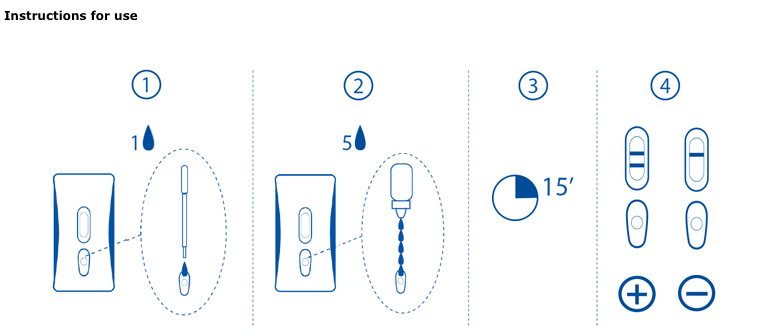New Rapid, In-Clinic Heartworm Test Now Available
Tests showed the Speed Diro test is highly sensitive and specific for D immitis antigen, even in cases of low worm burden.

Heartworm is a serious disease of global concern. Current diagnostic methods for heartworm infection include Knott detection of microfilaria in fresh blood samples and serologic tests to detect adult female Dirofilaria immitis antigen. Although serology is considered effective at detecting occult infections, low worm burden or antigenemia can cause false-negative results.
Researchers recently tested the performance of the new Speed Diro (BVT-Virbac, France) rapid immunochromatographic test kit designed to detect D immitis circulating antigen in canine and feline sera. A previous version of the test reported sensitivity and specificity values of 98.7% and 100%, respectively; the new test was designed to reduce nonspecific detection of Dirofilaria repens.
Study Design
The investigators tested serum samples collected 1 month after experimental infection of dogs with known numbers of adult worms. An additional 48 samples served as negative controls. Also, 142 canine and 102 feline serum samples were tested from animals living in heartworm-endemic areas of Italy.
RELATED:
- AHS Releases New Canine Heartworm Guidelines
- Blocked Antigen Causes False-Negative Heartworm Test Results
All sera were tested with Speed Diro. Sera from naturally infected cats were also tested with the SNAP Heartworm ELISA (IDEXX Laboratories) and compared against echocardiography results as a reference.
The investigators compared Speed Diro results from naturally infected dogs with the following methods: Knott microfilaria test, SNAP Heartworm ELISA, PetChek Heartworm PF ELISA (IDEXX Laboratories), and Witness Dirofilaria rapid immuno-migrating test (Symbiotics).
Results

Experimentally infected dogs were infected with 1 to 7 adult female and 3 to 25 adult male heartworms. The Speed Diro test successfully detected heartworm infection in 10 of 11 dogs infected with a single adult female worm and all dogs infected with 2 or more adult females. Control samples all tested negative. Sensitivity and specificity of the Speed Diro test were 98.0% and 100%, respectively.
Fifty-five of 142 serum samples obtained from naturally infected dogs were microfilaria-positive for D immitis and also positive on Speed Diro, both ELISA tests, and the Witness Dirofilaria test. Sixty-four percent (42/66) of the microfilaria-negative sera were positive on the 4 test kits, indicating detection of occult infections. Twenty-one serum samples were microfilaria-positive for D repens but tested negative with the other methods. When using the PetChek Heartworm PF as a reference, the Speed Diro, SNAP Heartworm, and Witness Dirofilaria tests all demonstrated 100% sensitivity and specificity for detection of heartworm infection.
Echocardiography of 102 cats revealed that 87 were heartworm-positive, 86 of which were also positive on the Speed Diro and SNAP Heartworm PF tests. Thus, sensitivity and specificity of Speed Diro in cats were 98.9 and 100%, respectively.
Conclusions
The new Speed Diro test was found to be highly sensitive at detecting low-burden heartworm infection in canine sera, including 10 of 11 experimental infections with a single adult female D immitis. The test also demonstrated equivalent performance to other rapid, in-clinic tests using ELISA and immunomigrating methods and did not cause false-positive results in animals with D repens infection.
Dr. Stilwell received her DVM from Auburn University, followed by a MS in fisheries and aquatic sciences and a PhD in veterinary medical sciences from the University of Florida. She provides freelance medical writing and aquatic veterinary consulting services through her business, Seastar Communications and Consulting.